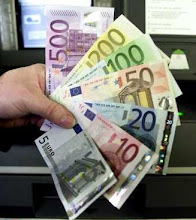In the investment world, there are two words we hear more than any others—stocks and bonds. While each can offer their own advantages and disadvantages, both should be included in your portfolio. As a general rule, stocks have outperformed bonds since 1926; returning 10.4 percent against government bonds’ 5.4 percent showing.
However, when stocks go bad—and they will—bonds will always be there for you. Over short periods of time (like the bear market of 2000 to 2002) bonds easily outpaced the growth of stocks. However the world of bonds can be a confusing one, so let’s learn a little more about them.
Why to get fond of bonds
The first word in smart investing is “diversification”. That means you own a good mix of volatile stocks and steady bonds in your portfolio. When one takes a hit, the other will usually hold steady.
Whereas stocks will only give you liquid results when you sell, bonds pay interest regularly, making them an attractive investment choice for retirees looking for regular income.
Bonds are also some of the some of the safest investment choices you can make, second only to cash. U.S. Treasuries offer a risk-free vehicle of stashing funds for a limited amount of time, and you’ll usually see modest gains while you’re at it.
Also, many bonds provide income that’s tax-free. That’s a good thing, even though most of these pay a lower yield than what you might get from taxable bonds.
Bonds at work
When you purchase a bond, you’re basically lending money to a corporation or the government so they can go about their everyday business or complete certain projects. In return, they pay you interest annually and then give back what you’ve invested once the bond “matures”, meaning its term ends.
Now for a little lingo. A bond’s “par value” is the price paid for it when it was new. A “coupon”, is what the bond pays annually in interest. For example, a $10,000 bond paying 8 percent a year would have a coupon of $800. If you don’t buy a bond new, you’ll be purchasing from another person in the “secondary” market, and you’ll pay the current market price on the bond (which fluctuates daily) though still receiving the same coupon. A bond’s “total return” is all the money you will earn off of the bond. That includes the annual interest along with its loss or gain in the market.
Bountiful Bonds
There are a ton of bonds to choose from, but the safest choice is a U.S. Treasury. Interest and payments on these are guaranteed by the “full faith and credit” of the United States Government.
Within Treasuries, there are several bonds to choose from, all requiring different investment commitments, terms, and interest rates.
You can also choose from mortgage-backed bonds, which can yield around 1 percent more than Treasury bonds with a typical $25,000 investment. Then there are corporate bonds. Most of these are issued in $1,000 denominations and have terms ranging form one to 20 years, or even a few weeks to 100 years. The values of corporate bonds depend on the credit of the company you’re bonding. Like everything else, it’s a risk-reward proposition when selecting a corporate bond.
Finally, you can also purchase municipal bonds in state and local governments and agencies. These are usually available in denominations starting at $5,000, with terms of 30 to 40 years. The great thing about municipal bonds is that your interest returns are typically exempt from most federal, state, and local taxes.
Risk-Reward
Though bonds are typically less volatile than stocks, there are still risks. Interest payments can be worn by inflation. If interest rates rise, bond prices will fall. Also, some bond issuers reserve the right to “call” back bonds before term. If this happens, you’ll only get “par value” on the buy back, though “callable” bonds offer higher interest returns than noncallable bonds. Also, if a corporation you have bonded goes belly-up, say goodbye to your money. Finally, bonds, as with most investments, are at the mercy of the ups and downs of the everyday market. Just remember, the longer before your bond matures, the more unpredictable it becomes.
Resource: http://www.isnare.com/?aid=93474&ca=Finances
